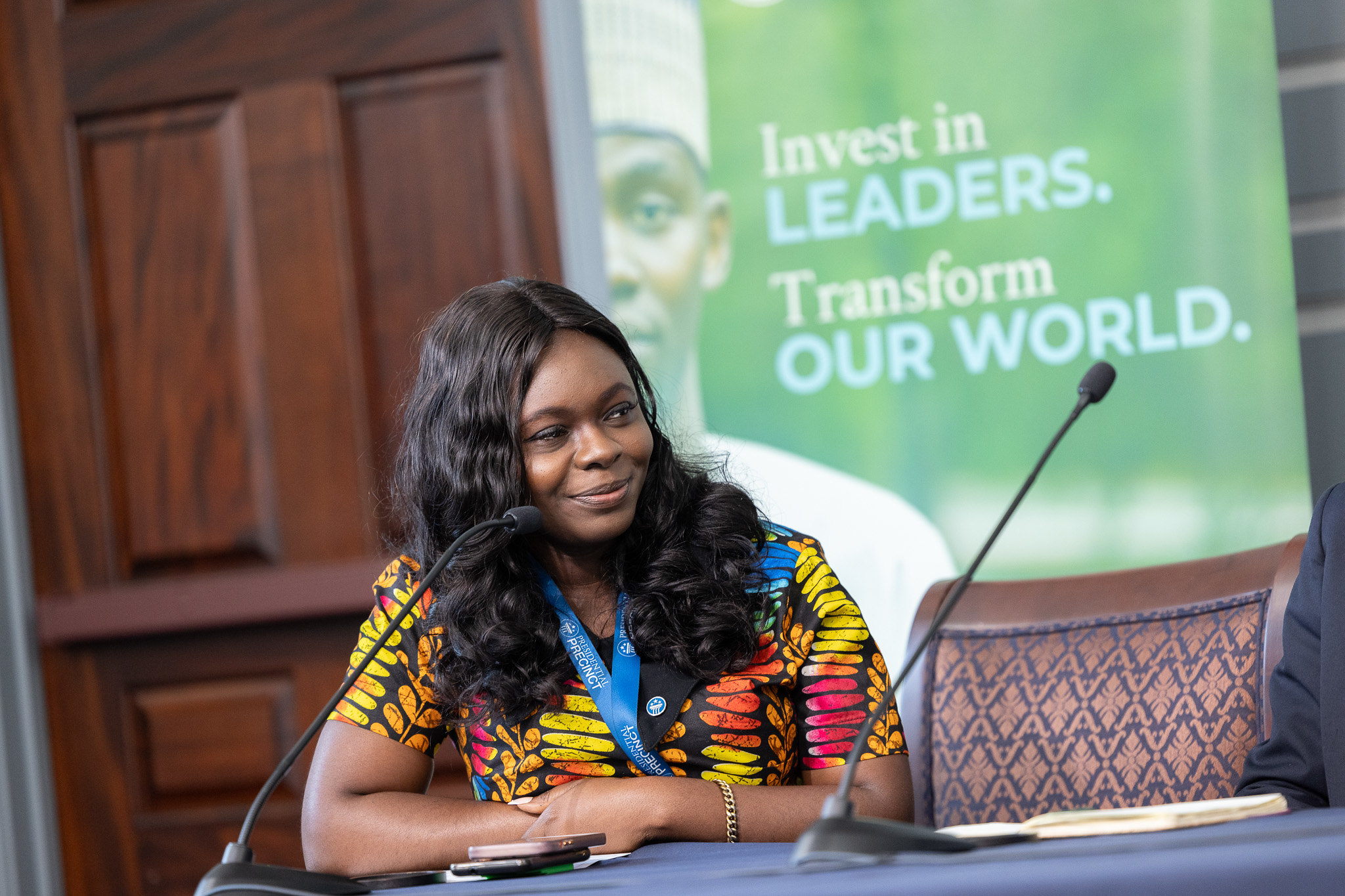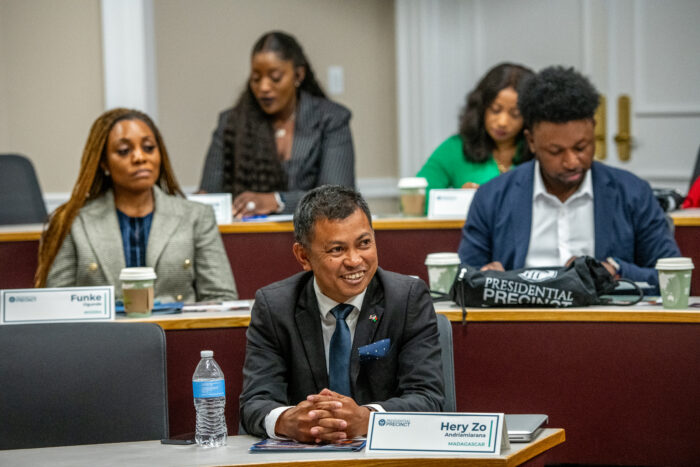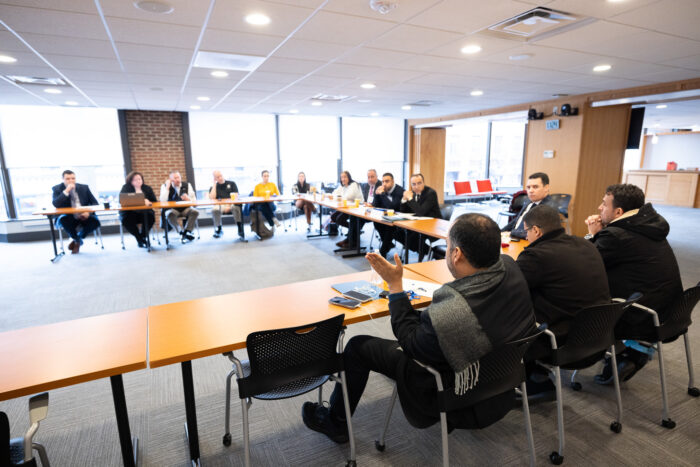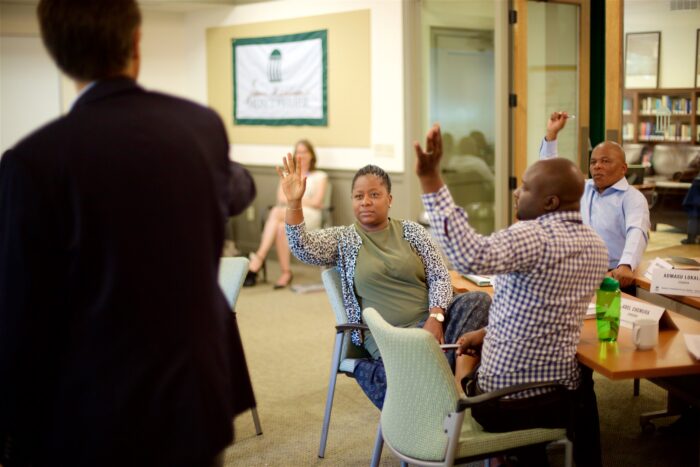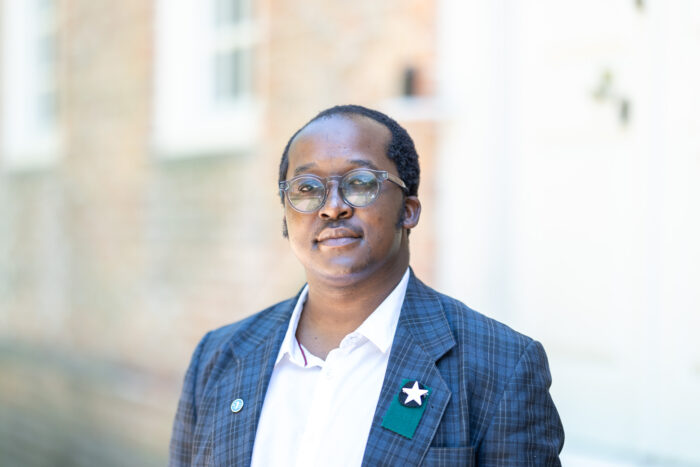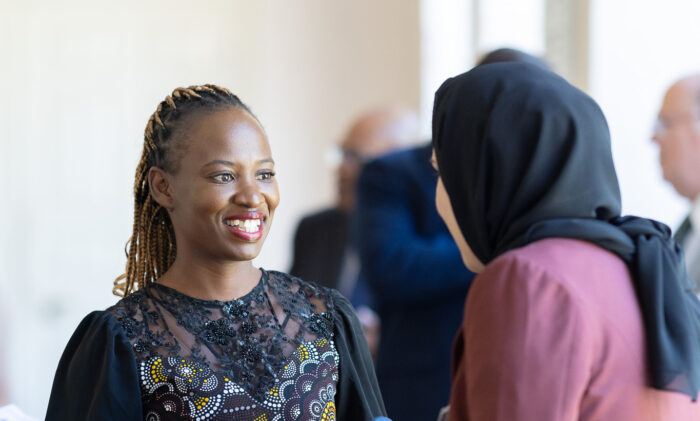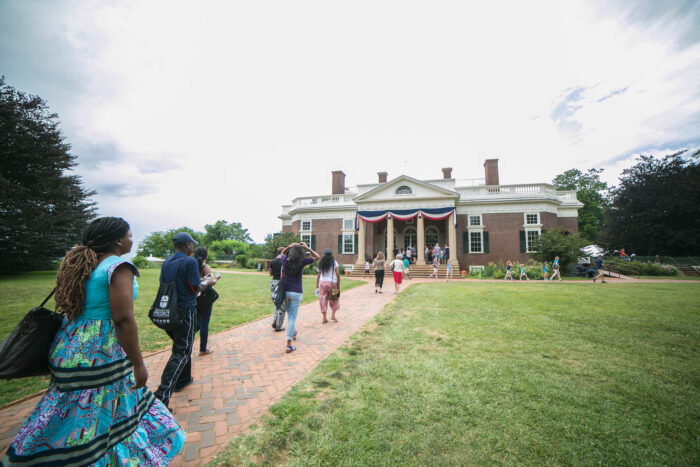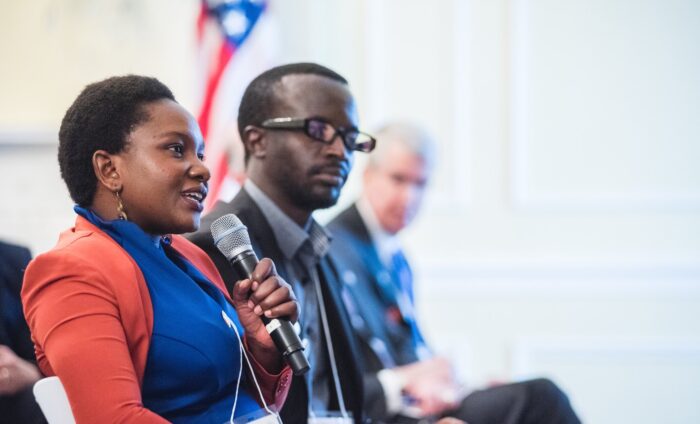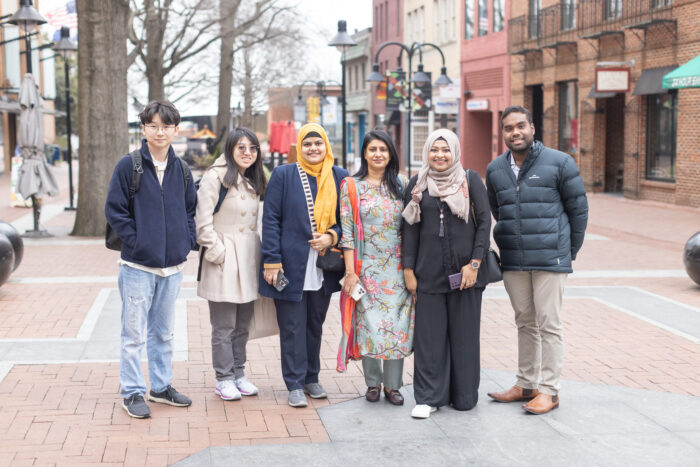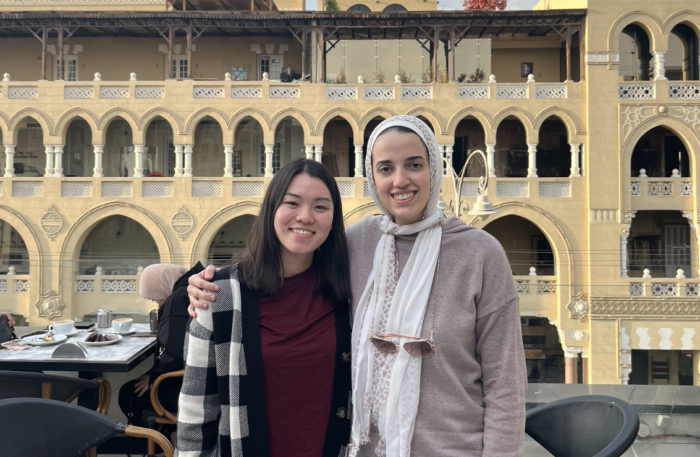Nafisa Atiku-Abubakar: From Vulnerability to Power
“Progress is possible, but not guaranteed. We have to fight for it.“
Hillary Clinton, Remarks to the 2024 Democratic National Convention
In Mid-March, I was ecstatic to discover that I had been chosen for the Mandela Washington Fellowship in Nigeria. To be one of the 54 chosen leaders out of 20,000 applications in my country is no mean feat.
My next point of excitement was finding out I had been chosen to be placed at the Presidential Precinct; a truly visionary organization which really creates the best leaders. Not just intellectually but morally. I came into the program, doubtful, unsure, and sometimes unaware of the power I held to create change. However I left empowered, powerful and confident that I had an ecosystem of leaders and community changers supporting my journey to truly impact the world.
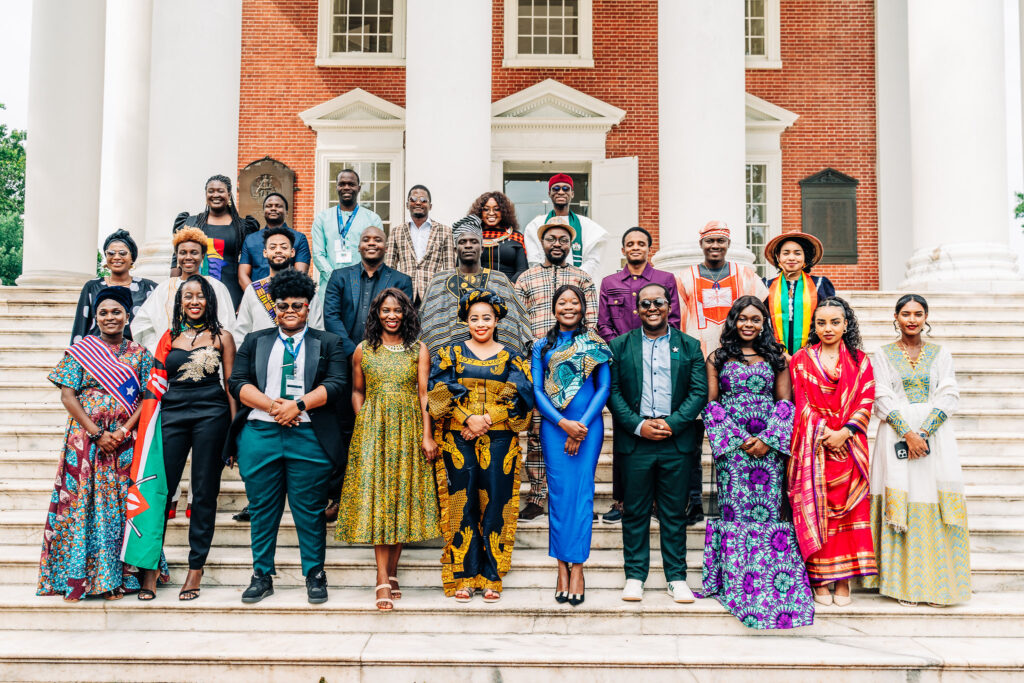
My Questions
I come from Nigeria, a country with an amazing youth bulge with young people forming more than 50% of that population. As impressive as our population size is, the path to prosperity, youth inclusion, and gender equality in governance and leadership has been fraught with challenges.
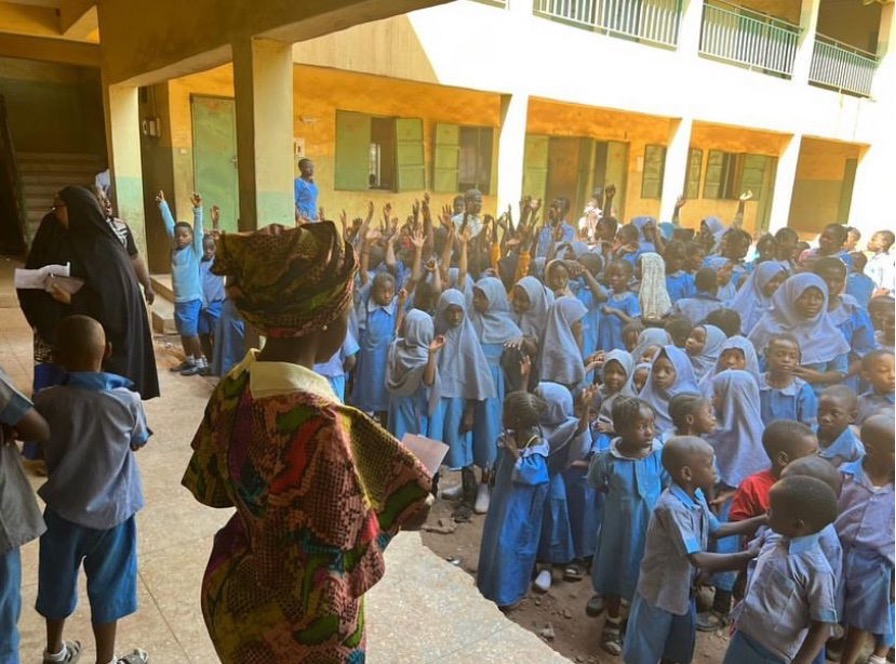
Even as a young woman, extremely interested in politics and the overall development of young women, I found my environment to be overwhelmingly patriarchal and often hostile to the ambitions and dreams of someone like me, despite my vision for change in many dimensions. This reality motivated me to become more involved in my community, working to change that narrative and provide platforms for other young ladies like myself to aspire and accomplish against daunting odds. It also left me with questions – questions that drove me to apply for the Fellowship and raise my hands in almost every class, as I sought the answers to clearly existential challenges that I could just barely grasp.
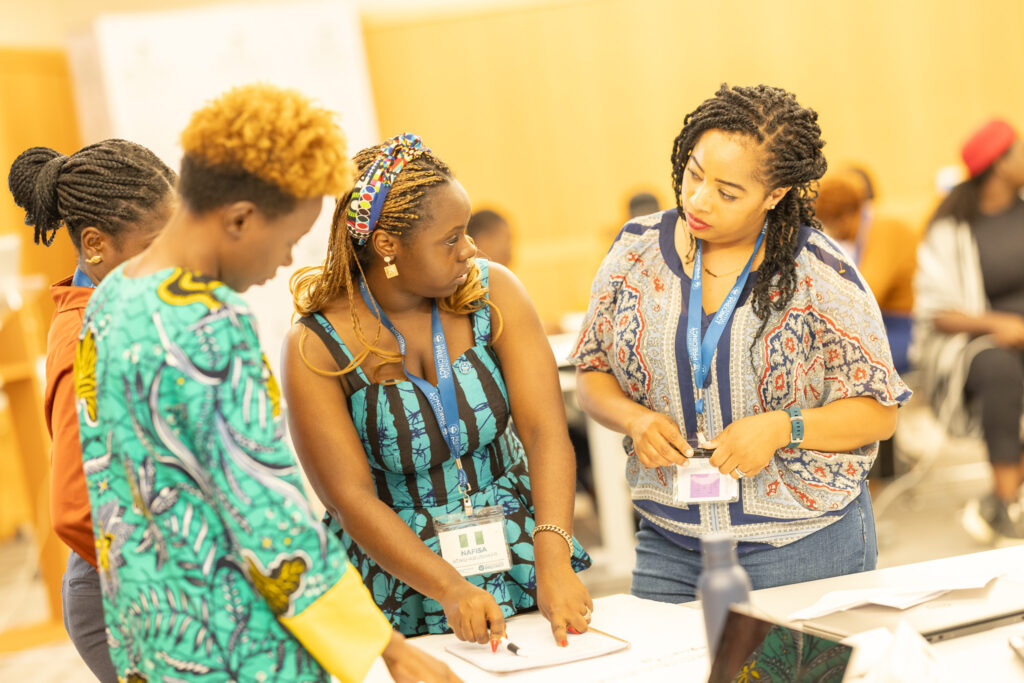
My Answers
I found my answers in the past. In history. In expressions of art which reflected resiliency and change. In a session with Allida Black – the historian and advisor to Hillary Clinton (former U.S. Secretary of State) and Ellen Johnson Sirleaf (former President of Liberia) and a Board member of the Presidential Precinct. The Presidential Precinct, known for shaping visionary leaders and presidents, truly lived up to its reputation. This became evident as we took classes and toured historical sites like James Madison’s Montpelier, William & Mary, James Monroe’s Highland, Thomas Jefferson’s Monticello, and the University of Virginia. The sites showcased monuments of democracy, struggle, and then change. It showed me paths of resiliency and reminded me that change could be slow to come, but it will certainly arrive.
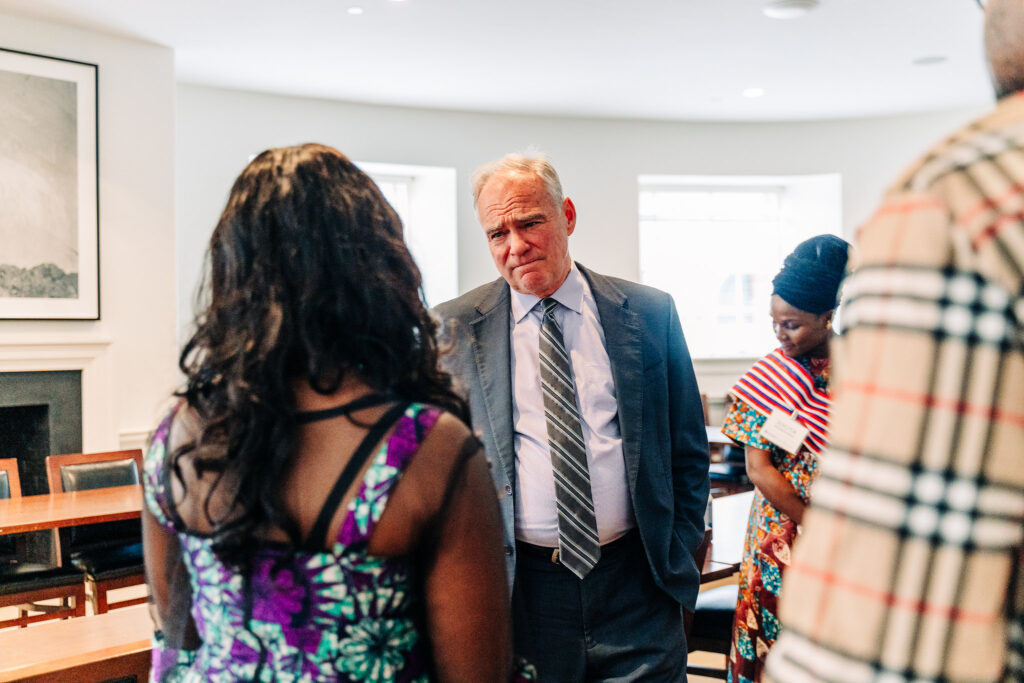
Our classes taught us the power of political imagination and that truly, any meaningful kind of positive change is first imagined and envisioned. I also learned the power of modeling authenticity as a leader and the power of human experiences in fostering and creating connectivity between different societal groups.
Forward in Power
On one of our final evenings at the University of Virginia, we had the opportunity to sit down with Allida Black, an intensely powerful woman who commanded the room for two captivating hours. The session began with a simple yet deeply probing question: “What are you most afraid of?”
When it was my turn to speak, I voiced the fears that had been weighing heavily on me—the same fears that had driven me to join the Fellowship. I spoke to the entire room about the millions of young people who struggle under inequities that stifle their potential, and I admitted my fear of failure and my deep concern for the future of my country. These were the existential questions that had haunted me, the ones that remained unanswered.
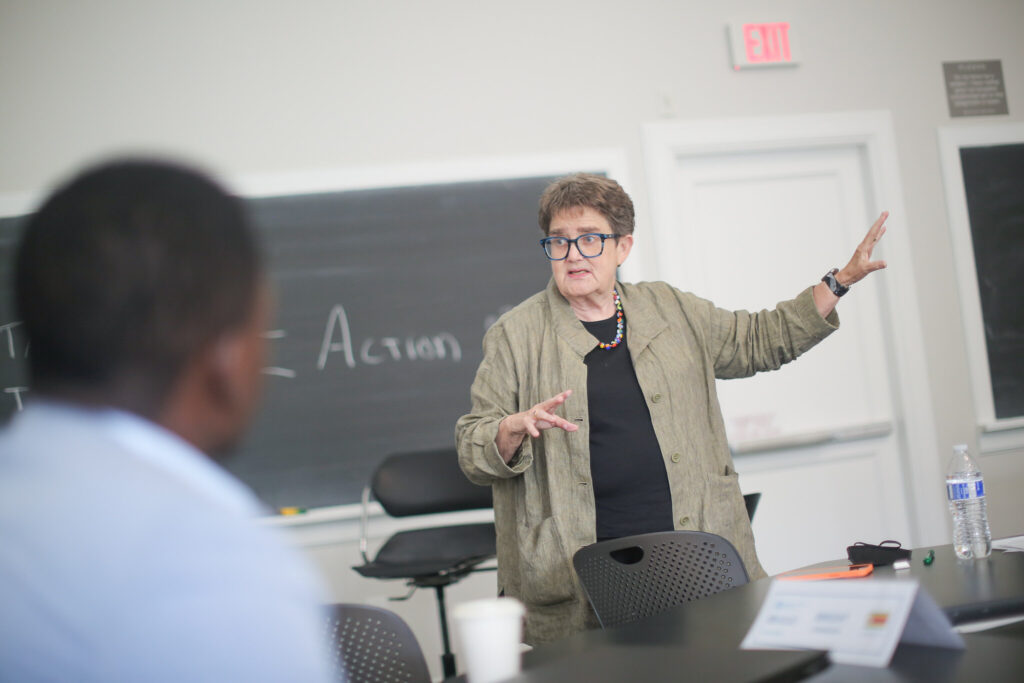
Allida listened intently and then responded with words that stuck and sometimes when I doubt myself, I still hear in my heart: “Progress is possible, but not guaranteed. We have to fight for it.” She reminded us that while we may never see the fruits of our labor in our lifetime, the work we do lays the foundation for eventual, groundbreaking change. She then spoke words of courage directly to each of us Fellows, and especially to me, fueling my resolve to continue the fight, no matter the uncertainties that lie ahead.
I’m back home now, the problems are still here but so is the resolve and a kinship with other 24 leaders across Africa, and together we will make a change.
—
Nafisa Atiku-Abubakar is a 2024 Fellowship Alumna of the Mandela Washington Fellowship at the Presidential Precinct.
The Mandela Washington Fellowship for Young African Leaders is a program of the U.S. State Department with funding provided by the U.S. Government and administered by IREX. The Presidential Precinct is a sub-grantee of IREX and is implementing a U.S.-based Leadership Institute as a part of the Fellowship.

